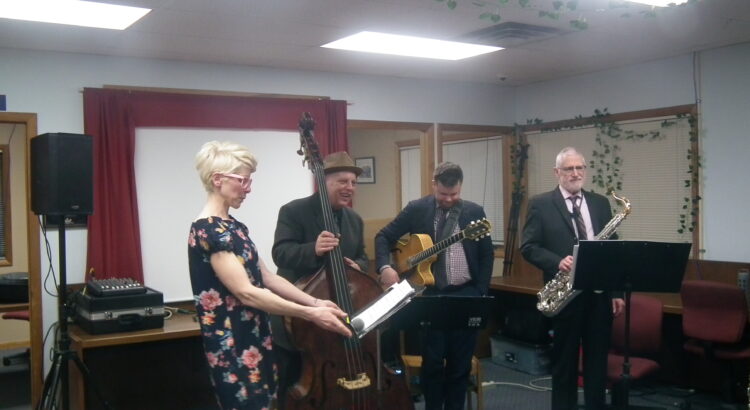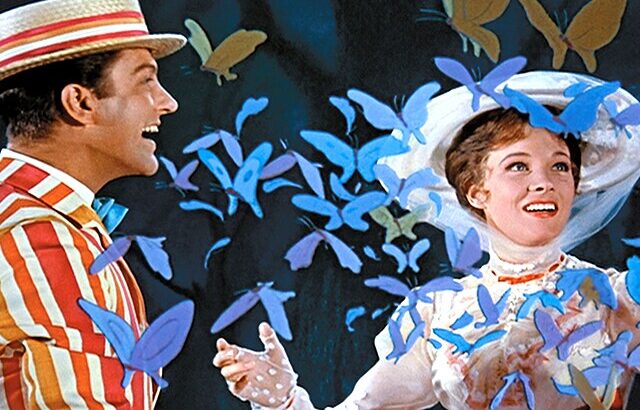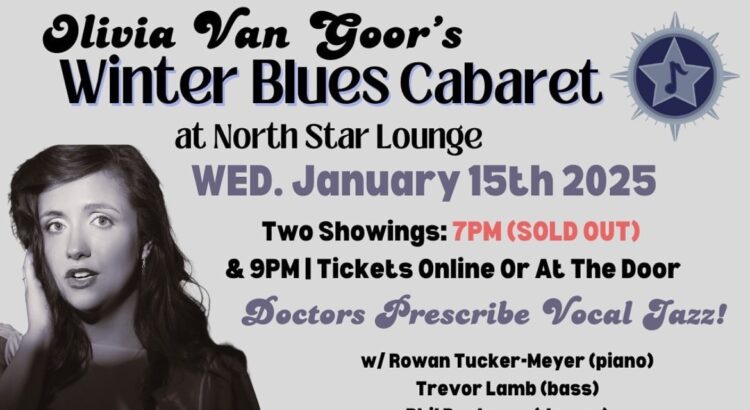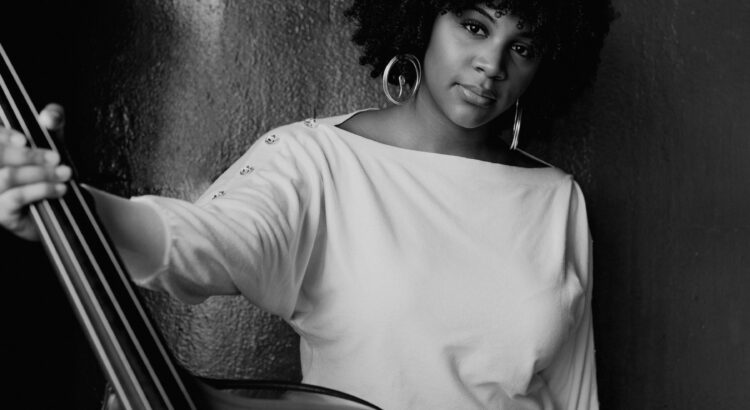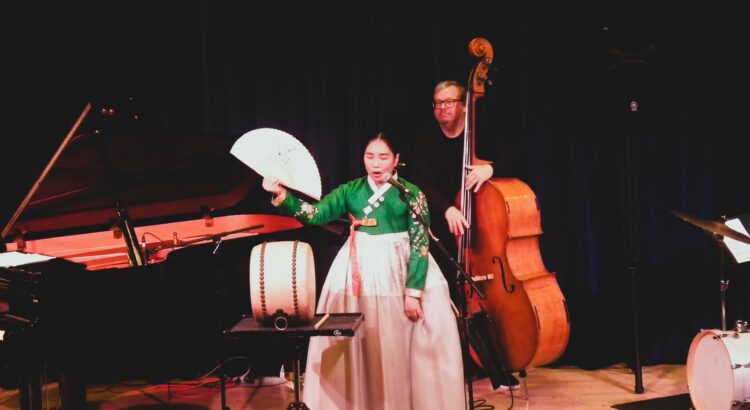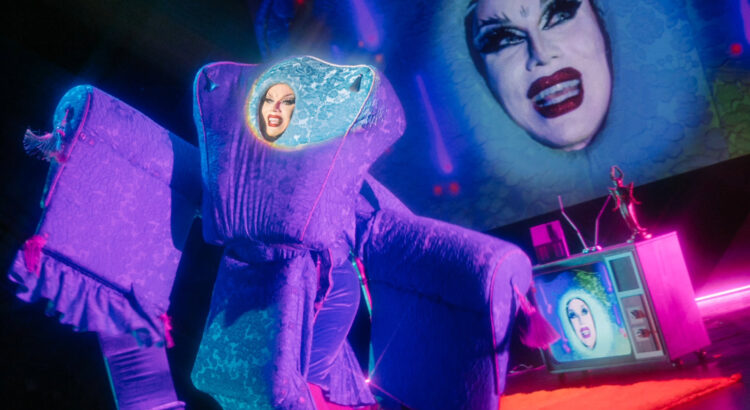Your early afternoon cup of Joe may be best served to a near burning temperature, but jazz on the other hand may best be served cold. A Flint resident looking for live jazz groups may find themselves to be surprised when they happen to come across the highly acclaimed Paul Keller Quartet in humble Holly Michigan. The Paul Keller Quartet has been shattering the Detroit jazz scene since 2011. One may often find the group in a bustling jazz lounge or restaurant throughout Ann Arbor and the greater Detroit area, but for this past Tuesday, Holly residents were welcomed to a more personal and intimate experience right in the towns’ cozy library.
Alongside coffee and decadent bite size pastries sat a quartet with genuine love for the craft.
“Yeah man, give it to me!” exclaimed an engaged Sarah D’Angelo while entranced in her collaborator’s spontaneous creative auditorial flow.
It’s something you like to hear, the engagement, the mid-song applause and praise, being feet from performers, one can close their eyes, and interrupt their surroundings as a communicative gathering for personalized expression. Don’t close your eyes for too long, for when looking at the performance you can see the passion put forth in the faces of the artists’ subtle (and maybe not so subtle) gestures communicate their truths through facial expression. It seemed while one player took a solo, the others happen to be singing or scatting the melodies they had just produced.
Every artist brought a unique color to the performance provided a clean and collective combo array of sound. The blend of clarinet and tenor saxophone especially crafted a dark inflection of the lows that complemented the upper clarion register of the clarinet. As both a clarinet and tenor saxophonist myself I find myself amazed at how these two instrument colors merge, I feel inspired to write harmonically for these two horns in my own original material.
Paul Keller wrote many arrangements of the works played that evening proving his myriad of utility as performer, artist, and creative writer. I found it quite compelling how for one of the tunes the saxophone was written over the clarinet for the melody. The upper range of the saxophone combined with the low register of the clarinet displayed a low smokey undertone not many works utilize. A creative choice of breaking the rules of typical western harmony one may say.
Two original songs draped the small library that evening. Two tales of the passing and coming seasons, winter and spring. The work titled “winter song” featured the jazz singing of Sarah D’angelo along with a the tenor saxophone in the upper register, giving a cold whisper presence. The song personified both the season and the weather, this was followed be delightful solos in a “cool” jazz type of style. “Frosty winds say hello…”
The song focusing on spring was unique as it was written the day before the event, making this work a welcomed premier. Paul Keller spoke on how when he wrote the song, the title was the start of the creative process. Following the title, the chords, melody, and words came to him quickly. “Spring is just around the corner” also used personification when talking about the changing weather. Steve Wood turned to the flute which reminded me of the Grieg song, “Summer Mood.” Flute is synonymous to me with warm weather and early mornings, which may be what the artist was going for. Following the chorus the song sped up which made me reflect on the speed of time and the changing weather. Ralph Tope on the guitar provided a strong harmonic groove with a relaxed but consistent feel. The colors of the strings blended great with the horns, allowing all voices to balance.
Cool Jazz is a subgenre of jazz that was popularized by the jazz trumpetist Miles Davis. This style of jazz focuses on a walking but relaxed tempo and a prioritization of memorable and tasteful melodies when improvising. The quartet made everyone feel welcome and I found myself enjoying every moment. I am excited to see more of what these artists have to offer for future events.
Following the performance I was able to speak with the group. Prioritising small local concerts allows audience members to greet artists directly, something many people wish for when wishing to talk to their artistic influences.
I was able to talk to Steve Wood and get his take on what artists influenced him the most. Steve Wood is influenced by artists such as Yusef Lateef, Dexter Gordon, Ben Webster and Sonny Rollins
These great jazz giants defined and captured styles of the genre. Steve wood noted he transcribed several Dexter Gordon solos, and I can hear it in his sound. The dark subtone inflection is strong in his sound. The jazz language spoken by Steve wood was one that captures elements of all his inspirations. Jazz is a melting pot of what is picked up by the listener. You are what you eat? You are what you listen to!
When a celebrity is asked for a backstage interview what is the most common question the interviewee asks? What can you say to those looking to follow in your footsteps of course! I ask this question not only as a reporter but also as an artist with an increasing drive for jazz. Sarah’s answer was one that was simple but non the more true and possibly the most important. Play. Play often. Get out and find those with similar interests. I found that there is no substitution for experience. I can tell from

this show that Sarah D’Angelo has played countless gigs and presented herself as a courageous and wonderfully  charasmatic jazz singer and clarinetist that was a true pleasure to listen to. Sarah recommends newer jazz musicians to head out to Arethas Cafe, a jazz sit-in that focuses on education and learning, hosted by Scott Gwinnell every Sunday. I am hopeful the culture of jazz continues to grow. Going out and playing is a great outlet for individuals to express themselves.
charasmatic jazz singer and clarinetist that was a true pleasure to listen to. Sarah recommends newer jazz musicians to head out to Arethas Cafe, a jazz sit-in that focuses on education and learning, hosted by Scott Gwinnell every Sunday. I am hopeful the culture of jazz continues to grow. Going out and playing is a great outlet for individuals to express themselves.
This concert was made possible by the wonderful staff and directors of the Holly Township library. Notable efforts such as Tina Russette, the adult services manager, and Greg Hayes the library director allow concerts and events like this to be a regular occurance. The Holly Township library has several upcoming events that Flint campus locals can look forward towards. A belly full of piping hot coffee and jelly filled pastries held down the audience as they whisked into a warming but still winter night as cool and relaxed melodies packed the listeners ear in delightful hums.

